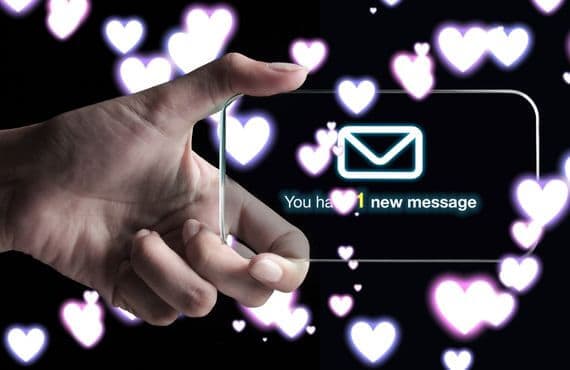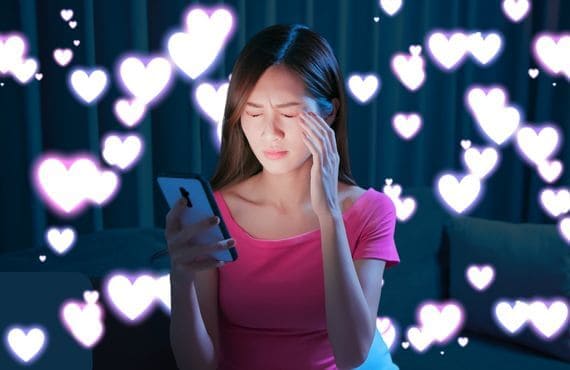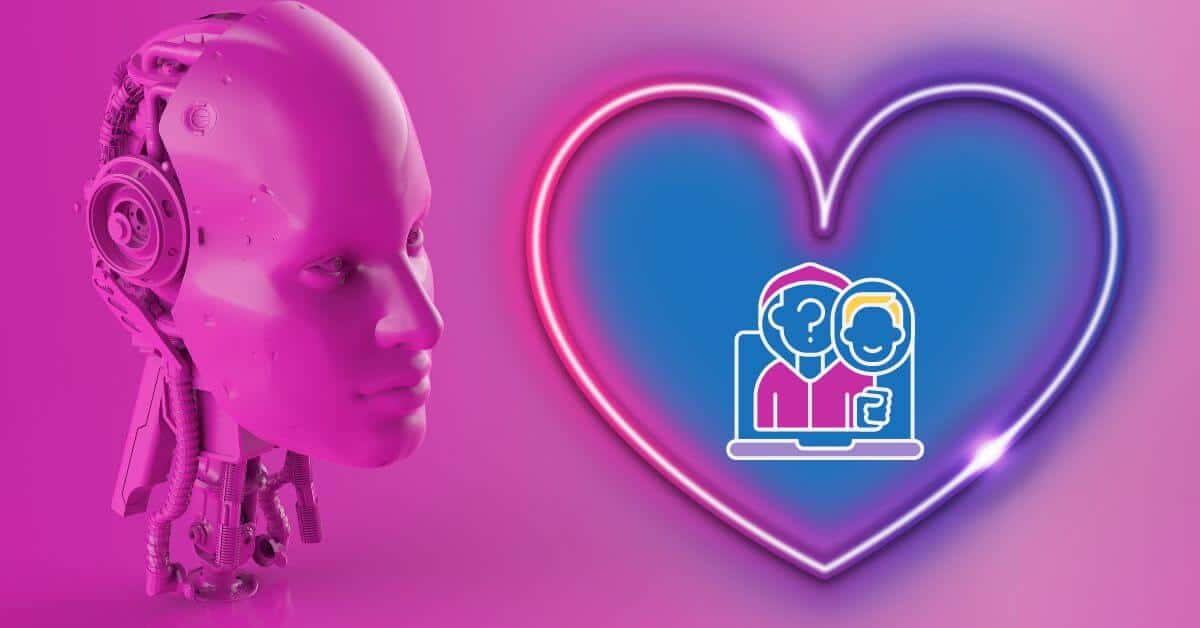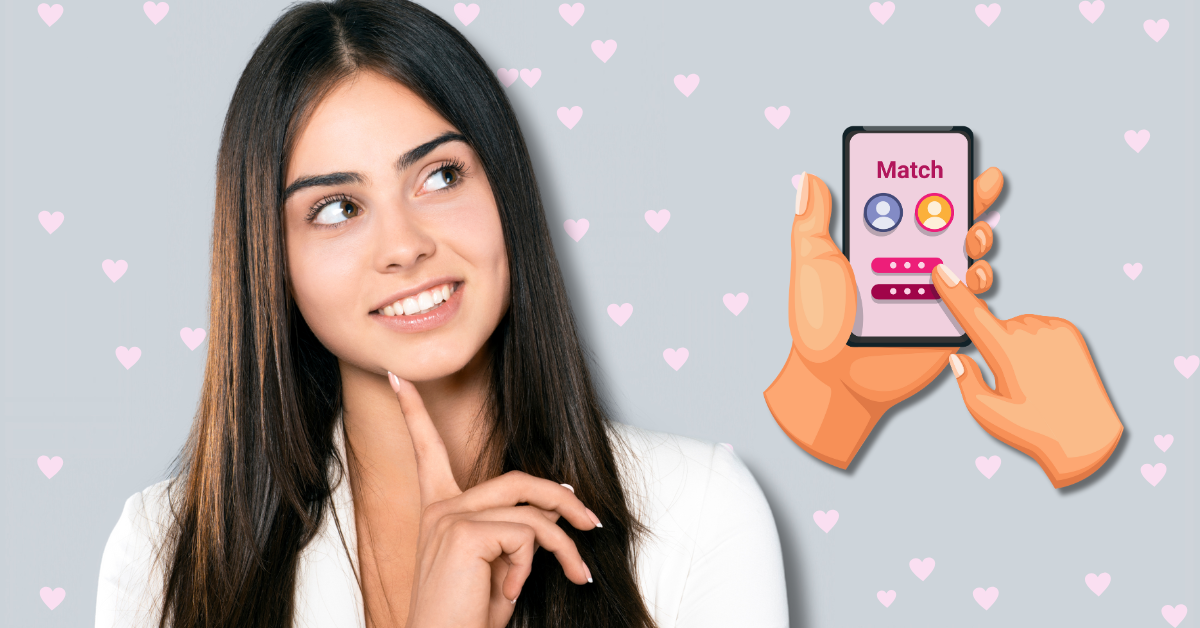Let me preface this story by saying that I am not a stupid man. I mean, I am a typical “dumb” man when it comes to certain things, but I’m pretty intelligent with IQ and education. So if you’d told me that I would get catfished by an AI dating chatbot I would’ve punched you in the face (metaphorically).
But you wouldn’t have deserved that punch because that’s exactly what did happen—I fell for an AI on a dating app.
That’s why this whole affair shook me and made me reevaluate my smarts and my entire self-worth and dating life. Am I dumb? Or is AI that good?
I’ve been frequenting dating apps for over a decade, and sure, I’ve had some shady encounters where a woman I’ve matched with didn’t look exactly like her picture or one who embellished certain aspects of her career or education. I mean, who doesn’t use their most flattering pic on a dating app or fib a little to impress someone we think is hot? I’m guilty of it as well.
But this—this is a whole new ballgame and one where I got hit in the chest with a line drive that I never saw coming.
How did an AI Dating Chatbot Fool Me You Ask?
In January, I was making my rounds on one of my three go-to dating apps after getting out of a long-ish relationship.
After matching with a few women, I came across one that absolutely blew me away—not only was she gorgeous, but her bio was hilarious, and I’m a sucker for funny women. I liked her on sight and prayed to whoever was up (or down) there that she’d match with me.
Someone was listening because not even 30 seconds later, that’s what happened. And she sent the first message. Sounds too good to be true, right? That’s what I thought. But while my spidey senses were tingling, as you have to be wary with any online interaction with a stranger, this wasn’t a red flag.
A funny, hot woman messaging first is not unheard of! In fact, it’s actually one of the things that drew me in even more–this was someone confident and not afraid to make that oh-so-awkward first move. We began to message back and forth, and man, was she charming and funny.
No alarm bells were ringing–why would they at this point? I had possibly found a unicorn on a dating app, and since I’d met my last girlfriend in the same way, this wasn’t even a yellow flag for me.

We messaged back and forth for over three glorious weeks, and she was engaging, a great listener (or reader), came with jokes, laughed at my bad jokes, and all that good stuff.
When I suggested we take our DMs to text because I was at this point desperate to meet her, she demurred and said she wasn’t “there” yet. And you know what? That’s fair–I was a stranger, and it hadn’t been a month.

Maybe she had been burned before, was safety-conscious, or any other valid reason she would not want to give out her phone number.
I didn’t push at that point, and we continued talking via DM on the dating app. Fast forward another month, and we had private jokes, knew a lot about each other (or so I thought), and I suggested we have a video chat if she wasn’t comfortable giving me her digits.
For the first time, she didn’t answer immediately, but I didn’t read too much into it because she’d told me her job was pretty hectic. A few hours went by, and she replied with a response that was unlike her up to this point; she said she couldn’t video chat because her phone’s camera feature had been “acting up.”
That was when I got suspicious. Now, I didn’t even consider it was an AI dating chatbot, no, no. I figured I’d been catfished by a person who was not the woman in the picture I fell for, but I thought it was definitely a person behind all those words! That’s when I started to dig.
The first thing I did was a reverse image search on Google, and the picture came back with no results. Which, stupid me, I thought was a good sign. This person didn’t pluck a random stranger’s picture off a social media platform and use it.
I only had her first name, so obviously, that was a dead end. Humiliating as it was, I decided to outsource my detective work to my little bro, who could probably make more headway than I could. I wanted to know what I was dealing with before I (gulp) asked her directly what was up.
In less than an hour, my sibling, who I’d let read all of our messages, had deduced that it was an AI–he said I’d been deep faked on a dating app. I was hoodwinked, bamboozled, hornswoggled! And I was embarrassed. He told me there was nothing to be ashamed of and that it’s become a “thing” that a lot of people, both men and women, get fooled by.

But why? Who gets pleasure out of tricking someone with an AI dating chatbot on a dating app? I can understand the rationale behind a real person doing it, but an ai dating chatbot? What’s the purpose? And he said, “To see how good their program is and if it can fool people.”
I went back to the dating app and told “her” that I knew she wasn’t real, and within 10 minutes, her dating profile was gone. So I went looking for some answers about how I could avoid this scenario again.
Is There Any Kind of Technical Fix for This?
My first search was to find out if there is any way of detecting if an image is an AI.
“When it comes to detecting viral AI-generated images, your best bet is often checking what others are saying. Google and other search engines have a reverse image search tool, which allows you to check where an image has been shared on the internet already, and what people are saying about it,” says Time.
Ok, but that’s a viral image. How about one that is just created to use as a dating profile pic and hasn’t been all over the internet? There probably is a way to check that, but it didn’t even cross my mind.
“There is plenty of software for sale that claims to be able to detect deep fakes, including an offering from Intel that says it is 96% accurate at detecting deep fake videos. But there are few, if any, free online tools that can reliably tell you whether an image is AI-generated or not. One free AI image detector, hosted on the AI platform Hugging Face, was able to correctly detect with 69% certainty that the image of the Balenciaga Pope was AI-generated. But presented with an AI-generated image of Elon Musk, also produced by the latest version of Midjourney, the tool gave the wrong answer, saying it was 54% certain the image was genuine,” Time explained.
As you can see, it’s hard to catch, and that is scary.
In a November 2022 study released, AI researchers at the University of Naples and software giant Nvidia set out to determine how challenging it would be to develop an AI-generated picture detector, and they found numerous challenges.

They discovered that AI picture generators leave behind undetectable telltale indicators in the photos they produce and that these “hidden artifacts” change differently depending on the particular software used for creating the image.
The bad news is that when a picture is shrunk, or its resolution is decreased, as often occurs when photographs are circulated and shared on social media, these abnormalities are likely to become tougher to spot.
As stated by Annalisa Verdoliva, one of the research paper’s co-authors, the researchers created a program that was capable of identifying the Balenciaga Pope picture as an AI-generated image. The code for the tool is accessible but not integrated into a web application, making it difficult for the typical user to access.
A different approach, initially detailed in a study released earlier this year, shows promise for producing more generalizable outcomes. Researchers found that the computer could readily replicate the input image with high accuracy by feeding an AI-generated picture into a state-of-the-art image generator called a diffusion model. On the other hand, the tool had a hard time making a close enough replica of a genuine image to be useful. Their discovery has not yet been implemented into a usable web tool, but it offers optimism that one day an app may be able to determine whether or not a picture is AI-generated consistently.
Final Thoughts
While I’d like to say I learned a valuable lesson from this experience, I can’t say that I have–I was confused about the motive for messing with someone’s heart, embarrassed that I fell for it, and not sure if I could spot it if it were to happen again.
Has this soured online dating apps for me? A little, I can’t lie. Will I eventually return to dating apps and search for my soulmate? Most definitely, but next time I’ll be extra alert–even though I think I was pretty cautious the last time around.




